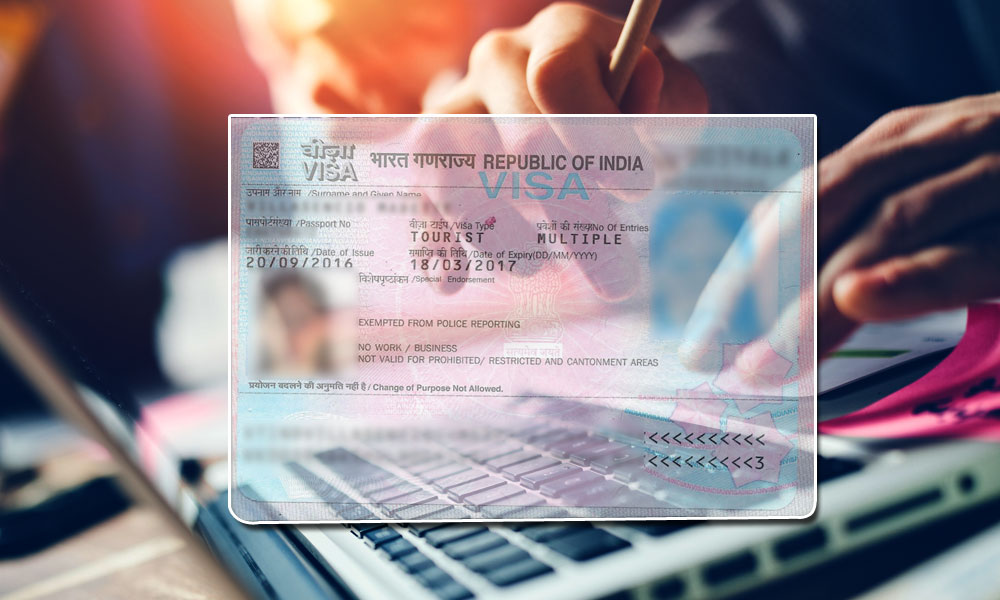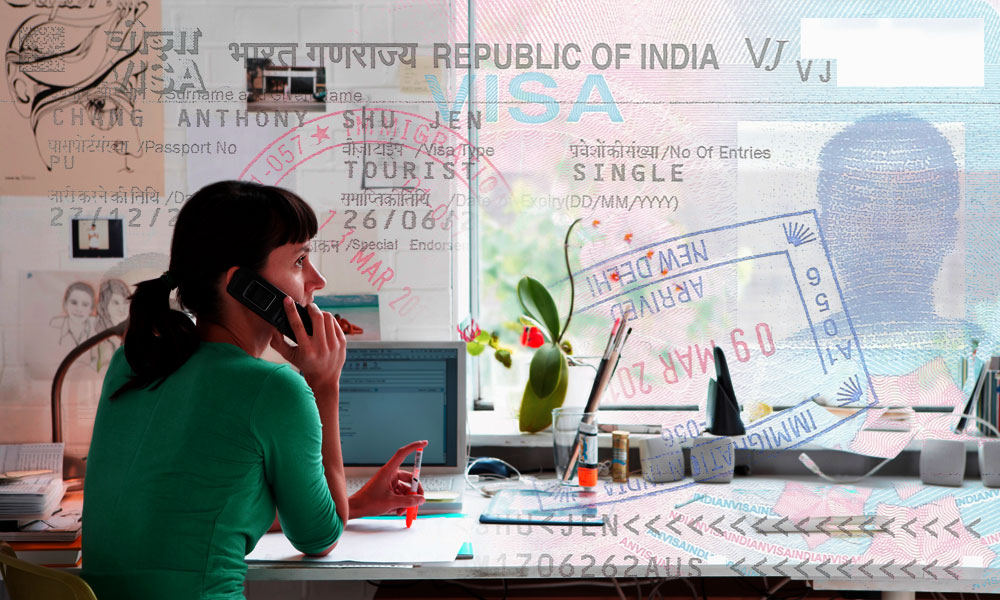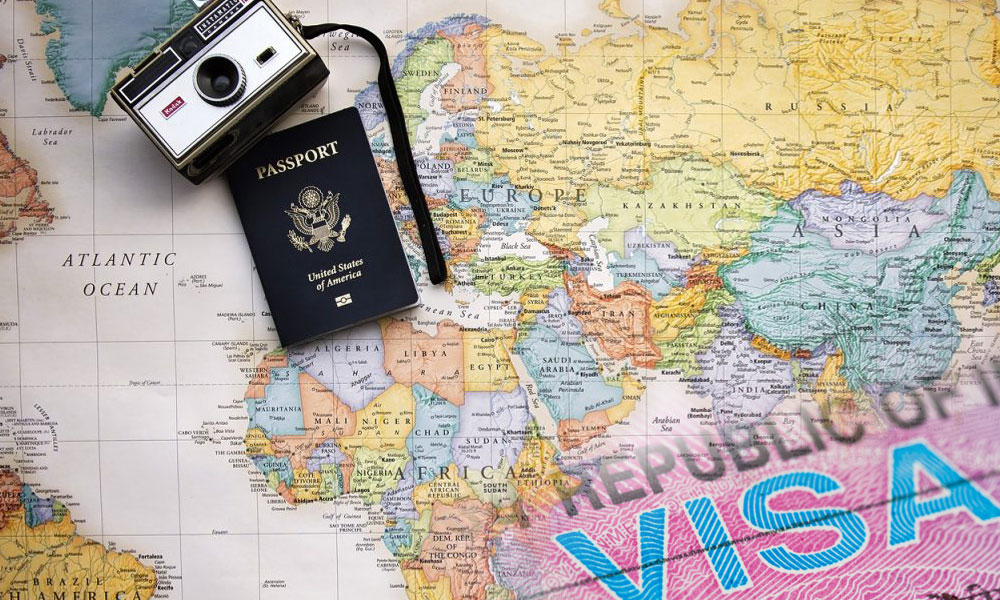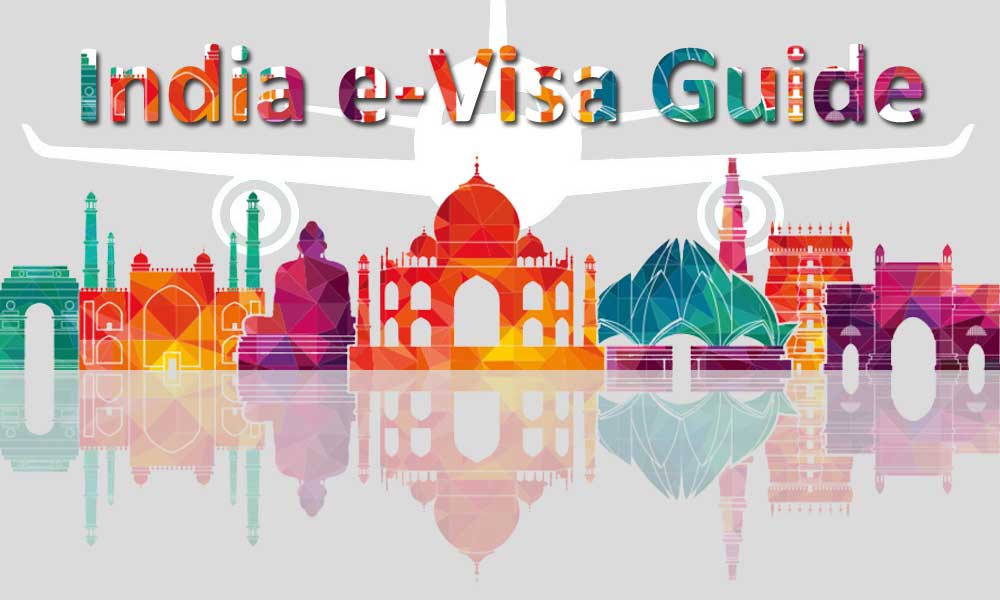
The government of India offers multiple types of visas. Also, the visa-types are categorized to make the application procedure convenient. Before applying for any visa, you must check the visa if it is actually what you need or your particular intention of visit falls in a different category. Let’s see what all visa types are available for foreigners coming to India. Get an overview of every visa, and apply the needful from the Indian government website.
Let’s begin with the modern visa type i.e. electronic Indian visa:
E-visa India:
With the advancement of technology, the Indian government has also up step its visa game. Now, a visa can be applied and granted online, without any physical appointments. This is an ultimate step by the Indian Tourism Ministry to take such tourists-friendly initiative. People who are willing to visit India for a shorter span of time can apply for an Indian electronic visa, just sitting at their place. Also, the process is quite simple and similar to various other government forms available on the internet.
To apply, just visit the official website, fill out the application form, attach required documents and pay the fee. You will receive the visa in your email within 4-7 days. It’s that simple!
The e-visa to India is available for 166 countries. Furthermore, it is divided into five major categories that satisfy each type of need. The categories are:
Indian e-tourist Visa
If you are planning to explore the beauty of India and your only intention to visit India is re-creation, you are sorted with this category. It is available for three durations namely one month, one year and five years. For one and five year span, you can stay for 90 to 180 days depending upon your nationality.
Indian e-Medical Visa
India is consistently improving its medical sector and thus becoming center for medical and healthcare services. If you are looking to pursue a shorter medical treatment in India, you can try an e-Medical visa to India. You can stay for 60 days and complete your treatment.
Indian e-medical attendant visa
People visiting India on an e-Medical visa can take along two attendants who can stay with him/her throughout the treatment, but both the companions first need to apply for the e-medical attendant visa.
Indian e-business visa
India is becoming a business hub. From raw material to cheap labor, India has everything that is needed to start a business, hence various foreigners are investing in India. If you also want to avail of the golden opportunity, an e-business visa is what you need. This visa is available for a maximum of one year with multiple entries. But the continuous stay period cannot exceed the limit of 180 days.
Next, are the traditional Indian visa-types which are lengthier in processes but have longer stay period:
Entry visa:
Entry visa or X visa is a specialized type of visa that is only provided to the applicants fulfilling the special conditions and cannot be placed into any other visa category. The X-visa can be availed by the people who are:
- An NRI with the Indian origin.
- Spouse or child of Indian origin person
- Spouse or kids of the foreigners living in India, coming to stay for a longer period of time on Employment or Business visa.
- A foreign applicant who has registered himself/herself with spiritual ashrams such as Sri Aurobindo Ashram, Missions of Charities in Kolkata, Auroville, or certain Buddhist monasteries.
- A foreigner who is taking part in any international sporting event.
Entry visa can be extended while living in India. In other words, the applicant doesn’t require to leave the country after the specified time, as the visa extension application can be filed during the stay. The extension will only be granted by the Foreigners Regional Registration Office.
Tourist visa:
Indian Tourism is booming very rapidly with every passing year and there is nothing to be shocked about. India has always been the center of attraction to foreign tourists. India has one out of seven wonders, a diverse culture, flora-fauna, and very rich heritage, therefore the stand out the beauty of India is worth exploring. So, people coming to India, for recreational and tourism activities which also includes short term Yoga programs, need to apply for a Tourist visa.
However, Tourist Visa can only be applied for six months and it cannot be extended in any case. The Six-month rule was introduced in 2009 to prevent the misuse of a Tourist visa. Every visit to India with a Tourist visa must have a gap of two months. The traditional or regular Indian Tourist visa is different from the e-Tourist visa, as the regular one is only available for the duration of six months. Also, this visa type requires you to visit the Indian embassy in your country for a personal interview and documentation.
Employment visa:
With a large number of Multinational companies and rich resources, India is an employment source for many countries. So, a person coming to India for work in a registered institution, need a long-term Employment visa. And, a Special Project Visa is issued to skilled foreigners coming to India to work in steel or power sectors. This visa generally has the one-year validity and it depends upon the contact with the Indian company. It is an extendable form of visa which can be stretched without leaving the country.
To get the visa, you need to provide all the required proofs, especially the proof of employment with the Indian company, and the proof should include the terms and conditions and the duration of contact. The applicant must be having a particular amount of funds to teach in Central Higher Educational Institutes. However, the volunteers, translators, non-English language teachers, ethnic cooks, and members of Foreign High Commissions and Embassies fall under the exceptional category.
New: Intern (1) Visa:
Before 1 April 2017, any foreigner who wants to pursue any sort of Internship in India can apply for an Intern visa. But, now the applicant needs to fulfill the specified conditions to avail the Intern (1) visa. The applicant needs to show the one year gap between graduation or post-graduation and the start of the Internship.
This visa is only provided until the Internship program lasts. It has a maximum duration of one year but it varied from case to case. If your internship program is 10 months long, you will be provided with the 10 months Intern visa. Also, this visa cannot be converted into any other visa.
Business visa:
The scope of Business in India is improving with every succeeding year. So, those who want their luck in Business in India, need to apply for a Business visa. This visa is different from the Employment visa and has the condition that the applicant must not be working with any other Indian organization as an employee.
To get the Business visa, the proof of business, specifically a business letter from the partner Indian organization is mandatory. The letter must include the details about the nature of the business, stay period, places to visit in India, and the source to meet expenses.
A business visa can be applied for one to five years and allows multiple entries. However, the continuous stay period cannot extend 180 days unless the applicant is registered under the Foreigners Regional Registration Office (FRRO).
Student visa:
The student visa is meant for foreigners who are willing to visit India for a long-term study program from a recognized educational organization. There are various study-programs, India is famous for such as the study of yoga, Vedic culture, and the Indian system of dance and music.
To get the study visa, the first thing you need is the admission proofs or papers of course registration. A student visa can be granted for five years maximum. This visa type can be extended depending upon the requirement of the course.
People who opt “Yoga Visa” usually get a “Yoga visa” mentioned on their visa, this describes the exact stream of study that the applicant is going to pursue in India. So, to study in the renowned institution, the applicant must get the “student visa” as a Tourist visa is not appropriate for the purpose of the study.
Conference visa:
The conference Visas is a specialized visa type that is issued to the applicants who are willing to visit India for attending a conference that is organized by a government body in India. This visa is only applicable to conferences or seminars conducted by the Indian government organizations and cannot be applied for private seminars.
Journalist Visa:
This visa is issued to the media person who is basically a professional journalist or the photographer. This visa is mainly applied by the media professionals who want to visit a specific region in India, attend a particular event or cover a special person. It is a short-term visa that can only be granted for the duration of three months. This visa has various special requirements which make it very hard to attain and hence only offered to the needy applicants.
To get the Journalist visa, your position as a journalist or photographer in a recognized media company can give you an edge. As people from a media background and working in a media company usually get this visa irrespective of their intentions to visit. Media people often get the best visa facility as they have the ability to describe or portray India before the world.
Transit Visa:
It is the shortest visa that can be attained only if you want to spend less than 72 hours in India. To stay more than this, a tourist visa can be applied. To get the transit visa, the applicant needs to show the confirm airline ticket for the onward flight. It is only aimed to enable the applicant to use India as the transition destination before the ultimate destination. Additionally, this visa cannot be extended or converted in any case. The visa is valid for the 15 days from the day of approval and nor from the date on which the tourist enters India.
Film (F) Visa
India is the talent hub and has a large number of trained artists. Foreigners often find the talent they require in India. Many foreigners films are produced and filmed in India. So, if you are the one who wants to make a film or TV program in India, you need to apply for Film Visa.
The entire application process takes 60 days for completion and it is conducted by the Ministry of Information and Broadcasting. The validity of the Film visa is one year, depending upon the shooting schedule.
Research Visa
India is rich in hidden gems and people from different corners of the world come to India for performing various research activities. So, to pursue any research in India, the research visa is what you need. This visa is issued to scholars, professors or doctorates to complete their research on a particular topic. This visa is very specific and hence the list of requirements is quite long. This visa is only provided after a personal interview with the Department of Education and the Ministry of Human Resource Development to get approval. The entire process takes around three months for completion.
Medical Visa
India is consistently improving its medical facilities. Due to being effective and affordable, the Indian medical sector is popular across the world. Hence, people from different nations prefer India for their treatment. Thus, the medical visa is meant for foreigners who are seeking medical help from an Indian recognized medical institution for their ailment. It is a long-term visa and the duration depends upon the procedure of recovery. To avail of this visa, the applicant needs to provide proof of their medical condition as it is only available for a significant treatment such as heart surgery, organ transplant, neurosurgery, neurosurgery, gene therapy, and plastic surgery. For every medical visa, two medical attendant visas can be availed.






